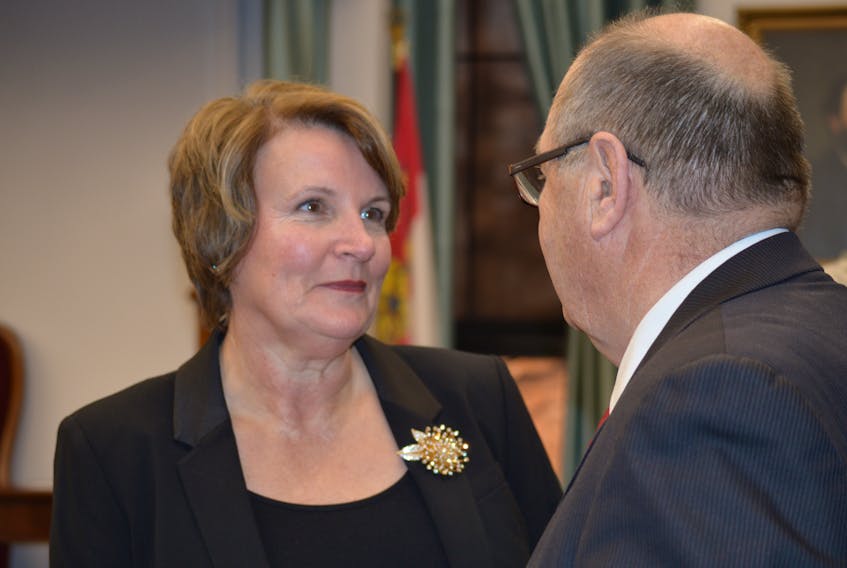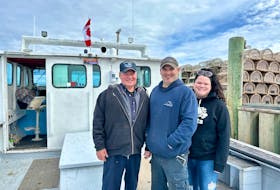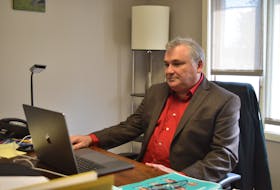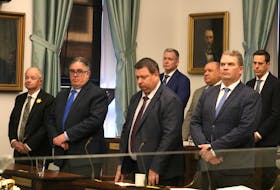CHARLOTTETOWN, P.E.I. - Calls were made today in the P.E.I. legislature for a full-scale review of the Island’s Provincial Nominee Program amid new concerns about alleged abuses within this program by immigrant business owners.
Opposition Progressive Conservative MLAs dominated question period Tuesday raising alarm about the PNP and allegations that have emerged in media reports over the last week by The Canadian Press.
Related: Foreign students allege abuse of P.E.I. business immigration system
The MLAs began and ended question period asking for a “full scale, top-to-bottom review” of the controversial Provincial Nominee Program (PNP).
“It is currently being used as a cash cow to cover poor fiscal management by this government,” said Opposition MLA Darlene Compton.
“Why is money, and not people, what this government values most in immigration?”
The concerns involve a growing trend in P.E.I. seeing immigrant-owned businesses opening and closing within a year, some employing international students and allegedly asking them to pay back a portion of their salary under the table to their employers to lower their business costs.
The businesses are operated by business-class PNP immigrants sign an escrow agreement with the province saying they will open a company and operate it in P.E.I. for a year, meeting minimum investment and expense requirements. They submit a deposit of $150,000 as part of this agreement, which is forfeited if they do not meet the terms.
In return, the immigrants get fast-tracked permanent residency in Canada.
Allegations are now surfacing that some PNP newcomers are trying to get their $150,000 deposits by opening businesses aimed solely at meeting the minimum terms of their escrow agreements. Once they get their deposits back, many of them close their doors and leave the province, according to the allegations.
Meanwhile, two-thirds of nominees through the business stream of the PNP are simply defaulting on their deposits, which has handed the province $23 million in revenues from defaulted deposits over the last two years.
“I want those individuals to come forward to the immigration office of Prince Edward Island because I will be the first one to enforce whatever we need to enforce and take the message, whatever it is, to the proper authorities, because if they’re breaking the laws they’re not doing us any good. They’re not doing the province of P.E.I. any good.”
-Economic Development Minister Heath MacDonald
Official retention rates show the province as long struggled to keep immigrants on P.E.I. The most recent tax filer data available is from 2013. This shows 66 per cent of immigrants who landed in P.E.I. in 2013 filed their tax returns in P.E.I. one year later. This has improved from 35 per cent in 2011.
Statistics have not been made available to show how many PNP immigrants remained in the province for subsequent years.
Opposition Leader James Aylward called on the province to change the rules of the program to force PNP immigrants to keep their businesses open for two years or more to improve retention rates and business practices.
He also pointed out a number of other provinces in Canada have phased out deposit systems like the kind used by P.E.I. due to similar problems.

Economic Development Minister Heath MacDonald defended his government’s handling of this program, pointing to recent changes to the way it is being administered, including a recent tender process for the intermediary companies that recruit immigrants from foreign countries to emigrate to P.E.I.
“Approximately five or six months ago we did a full scale review. We brought in an expression of interest, we did an RFP for 12 intermediaries,” MacDonald said.
“We know the importance of immigration, we know the obvious migration to Toronto, Vancouver and Montreal. We have to do something different and that’s exactly what we’re intending to do.”
He says staff in his department are ramping up visits to businesses to ensure compliance and meetings are being held with the various business and settlement agencies that deal with newcomers to ensure the rules for the PNP are clearly outlined.
As for the allegations about international students being asked to pay back a portion of their salaries, MacDonald says an anonymous web portal has been created to allow students or anyone with allegations or concerns to anonymously report them to the government.
“I want those individuals to come forward to the immigration office of Prince Edward Island because I will be the first one to enforce whatever we need to enforce and take the message, whatever it is, to the proper authorities, because if they’re breaking the laws they’re not doing us any good. They’re not doing the province of P.E.I. any good.”
P.E.I. PNP has previously faced allegations of fraud, probes by authorities
The Provincial Nominee Program has a storied history of controversy over the last decade in Prince Edward Island.
A previous version of the program was investigated by the province’s auditor general and reviewed by the RCMP.
Problems with that version of the PNP began in the fall of 2008.
Nominees were offered permanent residency in Canada if they invested between $105,000 and $200,000 on P.E.I., some of which went into an existing Island company. It was established to encourage immigration to the province.
But Ottawa shut down the P.E.I. PNP in 2008 after it discovered the province was allowing immigrants to invest in companies in which they had no active involvement.
P.E.I.'s auditor general launched an investigation into the program in 2009 and found the government of the day broke rules, changed rules without proper approval and approved local businesses for immigrant investments that should not have qualified.
Several current and former MLAs, senior level bureaucrats and their spouses received immigrant investments for their personal businesses.
The PNP later made national headlines during the 2011 provincial election, when the federal government called in the RCMP and the Canada Border Services Agency (CBSA) to probe allegations of bribery and fraud regarding the P.E.I. PNP from three former provincial employees who worked on the program.
Both the CBSA and RCMP reviews of the program eventually closed with no charges.
The province re-launched the Provincial Nominee Program five years ago, with different rules for business class immigrants that better complied with federal requirements.
Under the current business impact stream, applicants deposit $200,000 to be held in escrow by the provincial Crown corporation, Island Investment Development Inc.
After six months of residency on the Island, they can get $25,000 of their deposit returned. They get another $25,000 after one year in P.E.I.
The remaining $150,000 is returned once the applicant meets the conditions of business agreement. It says they must open a business in P.E.I. or invest in an existing business, owning no less than 33-and-a-half per cent of the company's equity. Applicants have three years to meet the terms for a full refund.
Last year, two thirds of nominees defaulted on their deposits after not opening businesses or not meeting terms of their agreements.









